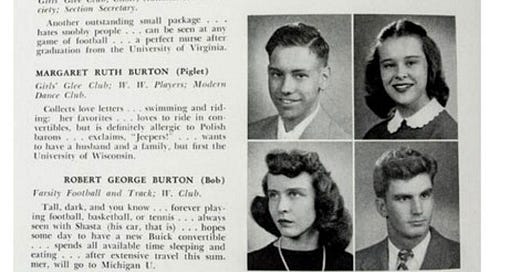Warren Buffett, Before Berkshire
Issue 1| 1930-1949- This issue introduces Warren Buffett, detailing his early life experiences from birth to his teenage years, including his entrepreneurial ventures, fascination with money.
Before Warren Buffett became the Oracle of Omaha, he was just a numbers, obsessed kid selling gum, flipping golf balls, and dreaming of a life without a boss. This issue covers his early hustle during the Great Depression, from door-to-door soda sales to his first stock at age 11, and the little green money changer he wore like a badge of honor.
It all s…
Keep reading with a 7-day free trial
Subscribe to Becoming Berkshire to keep reading this post and get 7 days of free access to the full post archives.



